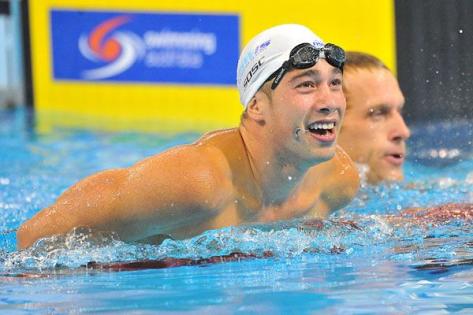With the London 2012 Olympics around the corner, some of us are no doubt looking forward to hearing the anthem play and the flag raised over venues in London (especially the aquatic venues which are managed by two Aussie guys anyway!) as we bask in a gold medal or two. We do like to think of ourselves as a sporting nation – but is it a reality?
The real picture is different when it comes to our children. Approximately 70% of children aged 5-14 years engage in some form of regular physical activity (a definition which includes sport or dancing) – which means that almost half a million children do not. Despite the success of various national sporting teams and continuing Olympic success over the past decade, the Australian Sports Commission has said that participation in sport by Australian children sport has stalled over the last decade.
By comparison, 87% of children are active and regular users of “screen-based activities” – that is, using a computer for homework, social media or games. Computer games are no longer the exclusive domain of ‘tech nerds’ either, according to a Bond University study. At least 80% of Australian families have a device for playing computer or video games and it is increasingly am activity that is enjoyed by the entire family.
This trend – which is not unique to Australia - together with the increasing concern about the weight and general state of health of children here and in other countries is one of the reasons why products, such as the Nintendo Wii, were a welcome addition when they entered the market as they offered the opportunity for children to exercise without leaving the house. The hope from some parents, developers and marketers was that the so-called ‘exergames’ would help make exercise and fitness fun for those who were not otherwise already participating in regular physical activity. In Australia, that’s a 17% gap.
But a study published by the Journal of the American Academy of Paediatrics earlier this year shows that there are no measurable health benefits to be derived from exercise-focussed games.
The study, undertaken by the Children’s Nutrition Research Centre at Baylor College of Medicine in Houston compared results of laboratory studies with ‘real life’ situations in the home. The study’s participants were 9-12 year old children whose body mass index was above the median and who did not already have a games console. Half of the study participants were given physically demanding games and the other traditional, passive games.
“There was no evidence that children receiving the active video games were more active in general, or at any time, than children receiving the inactive video games,” according to the study.
Another study published in the Journal of Strength and Conditioning Research last year found similar results measuring the impact on physical activity and fitness of both adults and children.
The result is not a surprise to academics.
"Changing sedentary behaviour is extremely difficult,” said Dr Charles Capetta from the American Academy of Paediatrics. “The fact is the ‘gold standard’ when it comes to physical activity with measurable health benefits is sport, or something physically demanding like dancing, which takes place outside the home.
“Kids need real balls, real courts, real racquets.”
So with a little over one month until the London Olympics gets underway, let’s use the Olympics to remind our children of a different sort of games and a different sort of reality television.
Just as Black Caviar has shown over the weekend, we revel in Australian athletic achievement – even when she’s a horse. While not everyone can or will be an Olympic athlete, it is a rite of passage for children to be running around the backyard or involved in a regular sporting activity.
More importantly, we run two risks by not having more of our children physically active on a regular basis: an increasing burden of chronic preventable disease which will have an impact on individuals as well as the broader community, and the loss of an intrinsic part of how we see ourselves as a sporting nation.
Enjoy a dose of reality Games. And then get out and do it.








 Agree (0)
Agree (0) Disagree (
Disagree (










__small.png)










